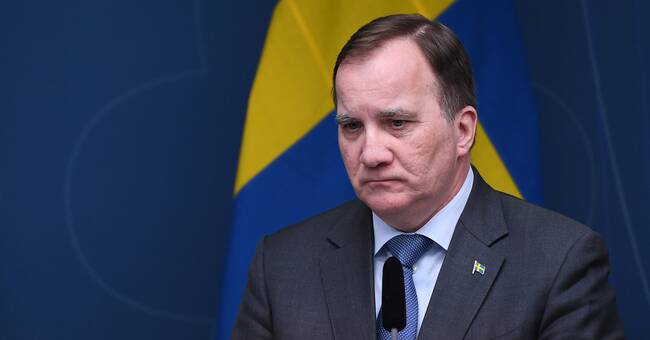On Monday, they stood side by side for the first time at a press conference, Prime Minister Stefan Löfven and center leader Annie Lööf.
Both wanted to be involved in presenting multi-billion investments in elderly care and healthcare.
Stefan Löfven called it a "seven devilish investment in welfare".
But despite the large additions to municipalities and regions, most of the issues at today's press conference were about gang crime and serious crime, not about welfare and the initiatives that the government and the January parties want to implement.
That says a lot about the political mood in Sweden today.
This summer's acts of violence, shootings and most recently the Deputy Chief of Police's statements about some 40 criminal clans have clearly focused on crime as a crucial societal problem.
Accused of insufficient efforts
The government repeats time and time again that extensive reinforcements have been made by the police and that a number of increased sentences have been implemented and that more and more criminals are in prison.
The opposition, on the other hand, accuses the government of insufficient efforts and of failing in its policies.
No matter what, this issue will haunt the government until election day, unless the government and the authorities can show a clear trend break in development before then.
It is not a bold guess that Stefan Löfven and his government are supposed to be smoked if they do not manage to turn the tide.
Today's press conference is an illustrative example of how crime is currently blocking the government from reaching out with its message in other areas where it wants to profile itself.
Crime dominates the debate
The government will shortly present a budget that is called historic due to the extensive measures of more than SEK 100 billion.
The question, however, is to what extent this can affect a public debate that is currently so totally dominated by a single issue.
The Social Democrats prefer to talk about welfare and that they are now making major investments there.
Instead, they are constantly forced to answer questions about why they do not succeed in stopping organized crime.
Much of the debate is recognizable from last autumn.
The corona pandemic meant that the focus, at least temporarily, was shifted to the acute crisis and issues such as health care preparedness.
Now, however, most things seem to be on their way to being as before.
This is bad news for the government.
On issues related to crime, migration and integration, the Social Democrats have clearly lower confidence than when it comes to issues such as welfare and employment.
The opposition on the right in the Riksdag also links serious crime with immigration to Sweden and a lack of integration.
Prime Minister Stefan Löfven refuses to accept this description of reality, which suggests that the issue will continue to be an important conflict issue in Swedish politics.

